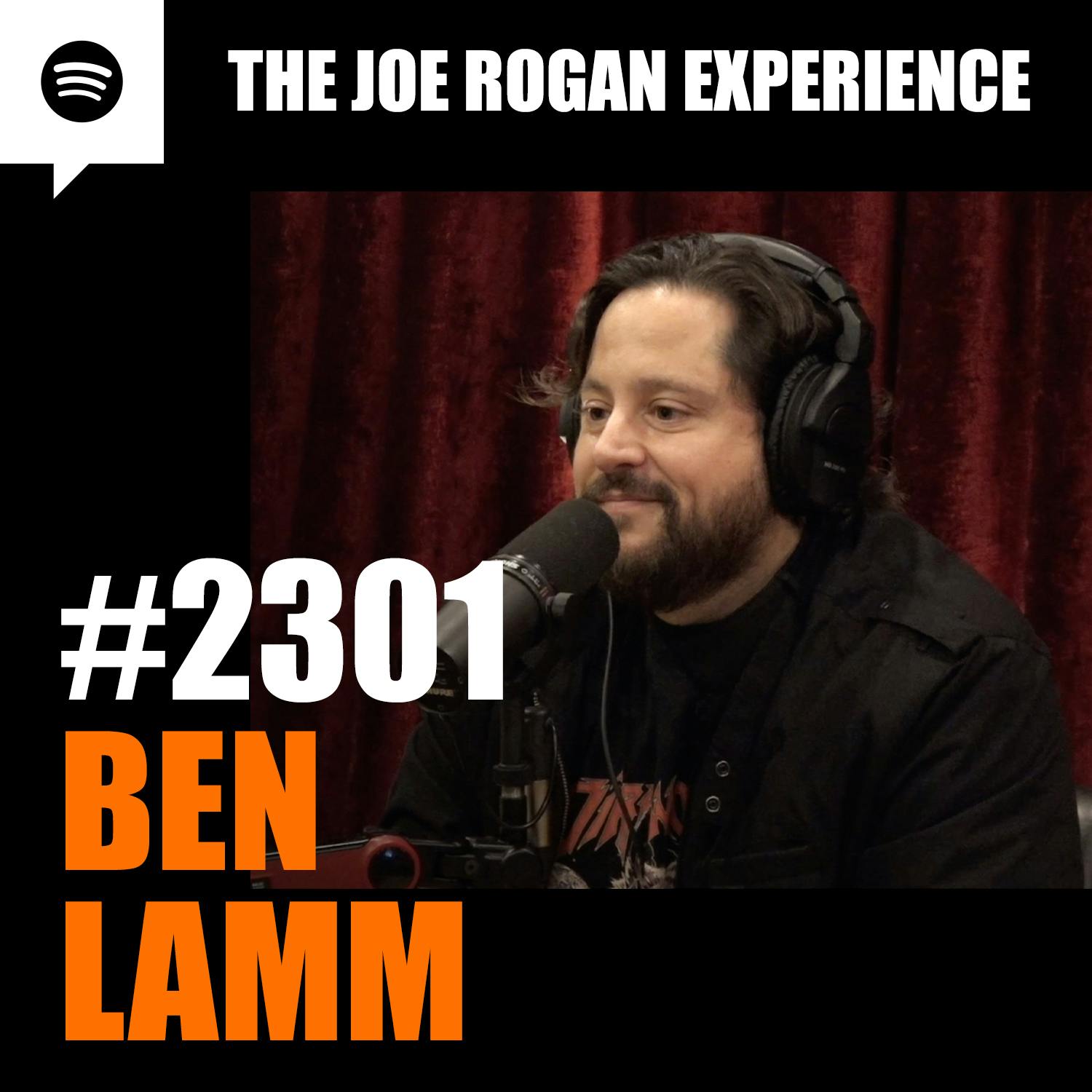
#2301 - Ben Lamm
Description
Ben Lamm is a serial entrepreneur and the founder and CEO of Colossal Biosciences, a company dedicated to genetic engineering and de-extinction projects. Colossal’s mission includes bringing back extinct species like the woolly mammoth and advancing conservation efforts through cutting-edge biotechnology. www.colossal.com Learn more about your ad choices. Visit podcastchoices.com/adchoices
Summary
Short Summary
In this episode, Joe Rogan talks with Ben Lamm about the groundbreaking work of Colossal Biosciences in de-extinction, including the revival of species like the woolly mammoth and dire wolf, and the implications of synthetic biology on conservation and human health.
Detailed Summary
#2301 - Ben Lamm
Introduction to Colossal Biosciences
Ben Lamm, the co-founder and CEO of Colossal Biosciences, introduced his company as “the world's first de-extinction and species preservation company” (00:00:31). This initiative parallels the concept of Jurassic Park, aiming to revive extinct species like the woolly mammoth. Lamm described his interest in synthetic biology as a curiosity driven by understanding life engineering using AI and computation (00:01:00).
Inspiration Behind the Company
Lamm’s journey into this field began with his conversation with George Church, a key figure in synthetic biology. Church frequently referenced his work on mammoths, which piqued Lamm’s interest in the potential ecological benefits of reintroducing such species and using related technologies for conservation (00:02:30). He recalled staying up all night researching Church, leading to his next discussions and eventually, the establishment of Colossal Biosciences (00:02:41).
The De-Extinction Process
Lamm explained that the company started with the woolly mammoth as their primary focus due to its significant relevance to elephant conservation. Their approach involved extracting ancient DNA, which tends to degrade quickly. Colossal has collected around 109 mammoth samples, ranging from 3,000 to 1.2 million years old (00:03:45).
The process described is arduous: assembling fragmented ancient DNA and using AI for mapping against the closest living relative, the Asian elephant. Lamm noted the surprising fact that Asian elephants are closer genetically to mammoths than African elephants (00:04:42). At the mammoth's last extinction, it roamed the earth approximately 4,000 years ago (00:05:32).
Understanding Extinct Species
When discussing the mammoth’s extinction on Wrangell Island, Lamm outlined that genetic bottlenecks and environmental conditions could lead to extinction, causing populations to overpopulate until resources depleted (00:06:17). Extinction has long-term ecological consequences especially since populations had long subsisted side by side with humans during significant historical milestones, such as the construction of the Pyramids (00:05:11).
Exploring the Genetic Engineering Techniques
Next, Lamm detailed the genetic engineering process, highlighting that they utilize both AI and computation on genetic engineering tools, including CRISPR, to introduce specific edits to genes (00:20:25). They work to ensure changes account for critical phenotypic characteristics like tusk shapes, body size, and coat color that distinguish mammoths from their relatives.
He also recounted their experiments with woolly mice which were created by identifying the specific genes responsible for fur characteristics and making targeted edits, resulting in successful woolly mice prototypes (00:22:21). Feedback from the public was overwhelmingly positive as the edited mice gained popularity online (00:24:40).
The Ethical Consideration of De-Extinction
The conversation delved into ethical considerations regarding de-extinction. Lamm explained that one of Colossal's driving goals is to revitalize lost ecosystems and not merely to restore species for novelty's sake. This is echoed by their efforts to work closely with indigenous communities and ecological partnerships to reintroduce species while considering long-term ecological benefits (00:30:11).
The podcast also touched upon the potential for bringing other species, such as the Tasmanian tiger, back from extinction due to their ecological significance (00:30:41).
Rewilding and Ecological Benefits
In addressing the broader implications of de-extinction, Lamm emphasized the benefits historically seen when keystone species are reintroduced into the ecosystem. This could lead to restoration of ecological balance, preservation of biodiversity and even recovery of other endangered species populations (02:11:22).
Lamm shared the example of the cane toad's introduction in Australia which decimated local species populations, underscoring the importance of integrating knowledge of interspecies relationships into restoration planning (02:31:37).
Human and Synthetic Biology Progress
Lamm discussed human health implications tied to the broader scope of synthetic biology and genetic engineering. He shared insights into ongoing advancements in health technologies, spanning pre-implantation genetic testing (02:45:17) to synthetic changes that could impact human aging and longevity (02:17:11).
He concluded by affirming the importance of keeping a balance between scientific discovery and ethical considerations. As new technologies emerge, ensuring they are used responsibly is paramount for future generations (02:30:36).
Conclusion
Joe Rogan's engaging dialogue with Ben Lamm paints a compelling portrait of the frontier of biotechnology. Colossal Biosciences stands at the intersection of de-extinction, ecological restoration, and synthetic biology, painting a hopeful picture of what future advancements in these fields could accomplish. Lamm’s optimism about the potential for revitalizing ecosystems and reintroducing lost species encourages a discourse on the possibilities of innovation intertwined with ethical responsibilities.
Keywords
Hosts
Joe Rogan
The Joe Rogan Experience
Guests
Ben Lamm
Colossal Biosciences
Founder and CEO